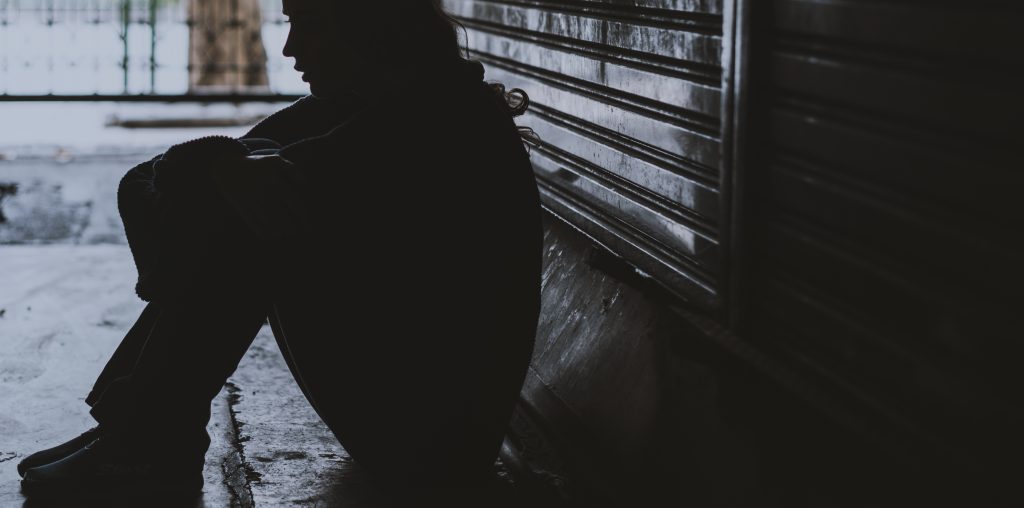Resilience In The Midst Of Crisis
We may not have everything we need or want in this lifetime, but there will always be a moment that we can lose all we have in just a heartbeat. Losing things that we worked hard for is normal. It is just “life”, but often there is a lesson to be learned which helps us to bounce back more effectively in future crises. Sometimes, it takes losing everything you have to finally grow and find yourself. The big question is: How will you respond when you lose everything?
Most people these days are goal-oriented. They have already arranged a blueprint for their future. It seems they’ve got their life all planned out. They overlook, and oftentimes, neglect, the possibilities of tragedy and mishaps. What will they do if a storm or earthquake wipes out their community? What will happen if they lose their job? What if, what if, what if. The usual answer that you expect to hear is “I don’t know” or “I’m not worried about it” That’s sometimes true, especially if they are naive and arrogant. While you cannot prepare for everything, it is possible to prepare for the things potential cataclysmic events have in common like increased costs, displacement, or resource scarcity. Loss comes to a person abruptly in different forms with no warnings. It may be a death of a loved one, a divorce, or an addiction. It could also be a loss of health, job, home, etc.
Loss of Income

Let’s take losing a job as an example to explore. Having a stable job means having a secure income. Having a job makes an individual capable of satisfying physiology and security in Maslow’s Hierarchy of Needs. Needs such as food and water are met. Security needs are also met in the form of having a house in a safe community, or the means of being able to access medical assistance and services. Security can also mean being able to afford insurance on your home that insulates your shelter against risks. Without new money coming in, if you don’t have an emergency financial support system in place things could look dire really fast.
The people behind 4SHTF prefer to have two levels of financial buffer. The first buffer you should put back is the equivalent of at least three weeks pay. We prefer to keep this in cash form so that it is readily accessible. This will help with emergency costs like automotive repairs, failing appliances, emergency travel or other moderate unexpected costs. Using this fund to pay for emergency costs and not forgetting to replenish it will ensure other necessary costs are not neglected. The second buffer is not nearly as easy to acquire, but it will put you leaps and bounds ahead of most people. If you have established the first buffer, start putting money toward a second buffer. The nice part of the second buffer is that it is not all cash. Consider your industry and job title and then figure out how long it would take to replace your income. Look at your expenses week to week for the last year and highlight the essential expenses.
Things like the state of the economy will be a factor in how long it takes for money to start coming in again. Another factor is experience, as the more you have, the higher your perceived salary requirements will be, and therefore the longer it may take to find a new place to work. Try to put back enough money to cover your costs for at least one year. Keep in mind, if you lose your job and are looking for a new one, there are additional job seeker costs that can be quite high depending on the type of employment you are trying to replace. You take a risk keeping large amounts in banks given their history of denying their customers access to money in times of market turmoil. However, keeping a year’s supply of cash to cover your costs can pose it’s own risks as well. Some people choose to diversify in markets outside of paper currency like metals, bitcoin, stocks, and other things they feel can be liquidated quickly without much if any loss in value.

If the economy faces hard times and many people are out of work, bartering skills and goods may be a viable option. Part of the second “financial” buffer, should be shelf stable food, water, and supplies. Keep in mind the acronym FIFO (First In First Out) Which means to consume the oldest goods first. Only stockpile the things you will actually consume yourself. If you habitually use things like nicotine caffeine or alcohol, we suggest working on those dependencies now so they don’t interfere with your mental toughness later. In a widespread disaster though, we recommend having these items stockpiled, as they will be valuable for trading. Learning how to negotiate and barter is a great skill to have regardless of whether you are doing well or rebuilding from nothing. Developing a Mutual Aid Group can also add a support buffer for when times of abundance become a memory. Other people who care about you will often be happy to help if they can see you are making an effort too.
The first thing to do after losing your income is to be open with your family and loved ones. Losing a job is a great time to ask the people who care about you and the ones that you trust for support. When you still have a job is the perfect time to put away the emergency savings buffers mentioned above. Having family around to support you emotionally will be important enough, do your best to avoid burdening them financially, if you can. The second thing to do here is to maintain a positive outlook on life. New opportunities will come in time. Stay positive and create a job search plan, and consider spinning the problem into an opportunity to pivot your career in a new direction. Do not overwhelm yourself with the expectations of other people. Avoid trying to do everything at once. The best thing to do is to set your priorities. Take some time to rethink your goals and make sure you have simplified them enough to make them achievable.
Community

Community is important in times of adversity, and if you have been into this lifestyle longer than a year or so and you haven’t started networking with like minds in your general geographic region, then you SHOULD BE DOING SO! Loss is often experienced by groups of people all at once, such as catastrophic natural disasters, or mass civil unrest, or regional economic downturn. Have the upper hand in situations like these by networking with people who have useful life experiences that compliment your own. Work together as a team and survive together. Human being are highly adaptive creatures, many have lived through the unimaginable and come out the other side better for it in a lot of ways.
It is a good point to keep in mind that we all have our personal ways of recovering from the losses that we have experienced. Share your recovery plan with close personal friends or colleagues, and be demanding of criticism. The most effective way to get people’s attention is to give them yours. You should be able to offer them your undivided attention in order to demonstrate openness and respect in the most powerful way possible. It gives them the message that you are talking about a serious matter and that it would benefit them as well if they listen. Approach them in a way that encourages them to respond with how they would react in the same situation. This personalizes things and gets them considering their own potential for misfortune, which can only help them as well.

Resilience in time of crisis, often presents heavily as a mental challenge. So we should not lose hope. Confidence is key, and convincing yourself of a light at the end of the tunnel is essential, even if you cannot see it’s glow yet. We often expect other people to lift us up. But that is a mistake. While others can provide limited support, the only one who can really help you recover is yourself. Do not let your failure define you. Instead, consider the process a legacy and example to other people who were struggling as well. Do not stay in your comfort zone. Rather, plan to expand your horizons and explore new things.
“You can’t connect the dots looking forward; you can only connect them looking backwards. So you have to trust that the dots will somehow connect in your future.” -Steve Jobs
Having integrity of character is important. It essentially defines who we are and how we choose to treat other people and how our values effect our decision making. The choices we make when interacting with the world is what people will remember when we are gone. Our failures do not define us, our character does, so take advantage of free will and be the best person you possibly can be regardless of how difficult life seems in the moment. Lack of confidence, integrity, and the ability to plan and pivot effectively, will almost guarantee that when you experience material loss, your recovery will be difficult if not impossible. Mental toughness is ESSENTIAL to resiliency in a crisis. Never allow yourself to stagnate.
Empty Pockets

Material loss of things like your housing, savings, or the loss of something else that you have worked hard for can be very defeating. The key to prevention here is disaster management planning and skills. List all of the disasters that could possibly occur in your area (earthquake, hurricane, tornado etc.) As well, thoroughly list other things and people in your life, that would have a negative impact on your survival, if something bad were to happen to them. Another important thing is to trust your gut. Most people second guess themselves. If you have a bad feeling that something awful might happen, heed those warnings and prepare yourself and your household. The subconscious is powerful at recognizing patterns that you may not be aware of, so go with your intuition but remain aware.
Make sure tangible items that you will miss are insured and stored securely. And of course insure the place you live. Take photos of your important files and store digital copies in a secure place, consider the pros and cons of storing multiple digital copies. It is also good to note that you should have a hard copy of all your contacts that might otherwise be stored in digital spaces like your cell phone email program or cloud based contact manager. Store Emergency food water and supplies in more than one location in the event one source becomes unavailable. Redundancy is a core concept of emergency preparedness and survival. Two is one and one is none, so have three.
The goal of getting into survival, emergency preparedness, or homesteading is to be able to extend survivability. All of the gear that money can buy will not compensate for a lack of skills, training or a strategic plan. Instead, consider gear as merely tools to make survival more convenient. Consider strategy on the best ways to optimize gear, have redundancy in your gear, but never put preparedness supplies aside for later without familiarizing yourself with the functionality and considering as many ways as possible to implement that item into your overall preparedness strategy. Having items that are multipurpose are great, unless multiple areas depend on that single item and it fails. Keep in mind there may even come a day when all of those preparedness supplies you so carefully stockpiled are no longer accessible to you. Have a plan! Knowledge weighs nothing!

In Conclusion, losing everything is not always the end. Sometimes, losing everything signals the growth of new beginnings. We are not our failure and losses, but we are who we choose to be, so choose to not just survive but thrive during adversity. What defines us is how we choose to rise after falling. Life will continue to tear us down, and we need to be resilient enough to be able to bounce back and outsmart the challenges. The fact is, life usually doesn’t get easier, we just get stronger if we are able to learn and apply knowledge from our previous experiences. In closing, value the people who choose to share their lives with you. Good people are one of the hardest things to lose, make sure they know your gratitude for them. If you have any other tips for surviving a loss, please join the conversation in the comment section below.
